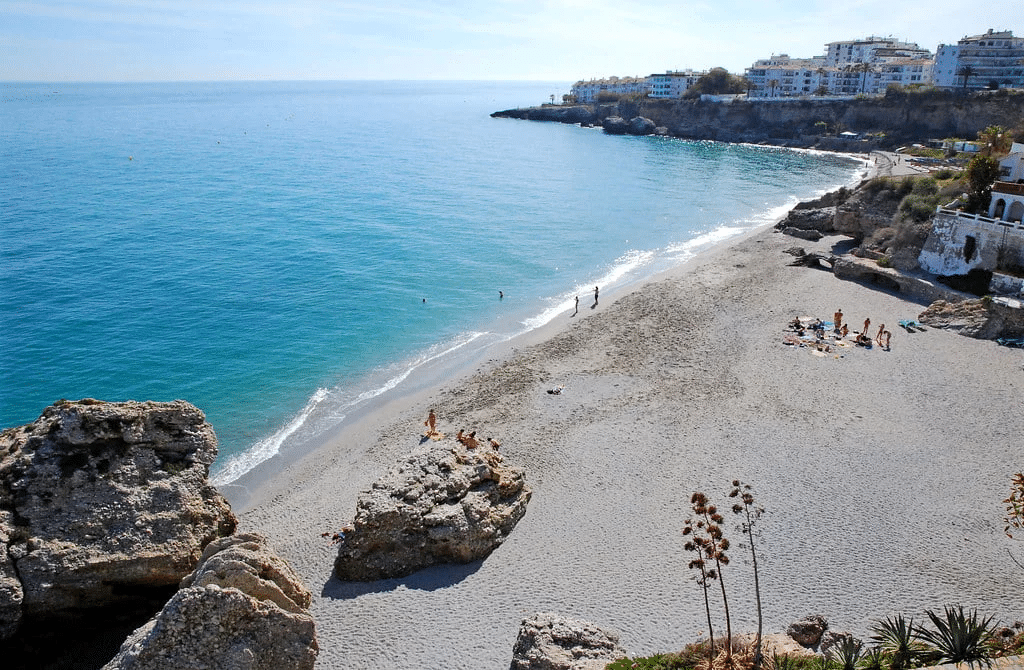
Tax Obligations and Consequences of Renting a Property in Andalusia
Andalusia, with its stunning coastline, rich culture, and vibrant cities, is a hotspot for tourists and long-term residents alike. If you already own a property in this beautiful region and are considering renting it out, it’s crucial to understand the tax obligations and consequences involved.
In our latest blog post, we delve into the different types of rentals, specific tax implications, and valuable tips for navigating the rental market in Andalusia. Don’t let tax complexities hinder your investment potential!
Ready to make informed decisions about your rental property in Andalusia? Contact 4YOURHOME.ES today for expert guidance and support https://4yourhome.es/contact/

Types of Rentals: Understanding the Distinctions
In Andalusia, rental properties are primarily classified into two categories, each governed by distinct regulations and tax implications:
1. Tourist Rentals (Viviendas con fines turísticos)
Definition: Properties rented out for short-term stays, typically to tourists or holidaymakers. This can include apartments, villas, and even individual rooms within a larger dwelling. The key characteristic is that the rental period is temporary and geared towards leisure or vacation purposes.
Legal Framework: Tourist rentals in Andalusia are regulated by Decree 28/2016, which establishes specific requirements for registration, operation, and marketing of such properties.
Registration: Mandatory registration with the Andalusian Tourism Registry is a prerequisite for operating a tourist rental. Each property is assigned a unique registration number that must be prominently displayed in all advertisements and rental contracts.
Regulations: In addition to registration, tourist rentals must comply with specific regulations regarding safety, hygiene, accessibility, and guest information provision. Have a look at our recent blog about the latest updates on rental laws in Andalusia https://4yourhome.es/latest-updates-on-andalusias-rental-laws-2024-what-property-owners-and-holidaymakers-need-to-know/
Tax Implications: Tourist rentals are subject to both income tax and Value Added Tax (VAT) at the standard rate.
2. Long-Term Rentals (Arrendamientos de vivienda)
Definition: Properties rented out for longer durations, typically for a minimum of one year, to individuals or families who intend to use the property as their primary residence.
Legal Framework: Long-term rentals in Spain are governed by the Urban Leasing Law (Ley de Arrendamientos Urbanos or LAU), which outlines the rights and obligations of both landlords and tenants.
Regulations: The LAU sets out provisions on rental contracts, rent increases, deposit requirements, termination conditions, and other aspects of the landlord-tenant relationship.
Tax Implications: Long-term rentals are subject to income tax but are exempt from VAT.
Key Distinction:
The primary distinction between tourist and long-term rentals lies in the duration of the rental period and the intended use of the property. Tourist rentals cater to short-term stays for leisure or vacation purposes, while long-term rentals serve as primary residences for tenants. As you can see understanding these distinctions is crucial for property owners in Andalusia as each rental type entails different legal obligations and tax implications.

Tax Obligations of Rental Property in Andalusia
Owning a rental property in Andalusia comes with certain tax obligations that landlords need to be aware of. These obligations apply regardless of whether you’re renting to tourists for short stays or to long-term residents. Let’s delve deeper into the specific taxes involved:
1. Income Tax (Impuesto sobre la Renta de las Personas Físicas – IRPF)
This is the primary tax levied on rental income in Spain. The tax treatment differs based on your residency status:
- Tax Residents in Spain
If you are considered a tax resident in Spain (typically, if you spend more than 183 days per year in the country), rental income is integrated into your overall income and taxed at your applicable progressive income tax rate. These rates can vary depending on your total income, but generally range from 19% to 45%.
- Non-Residents
Non-resident landlords are subject to a flat tax rate of 24% on their net rental income. This means that after deducting allowable expenses from your rental income, the remaining profit is taxed at this fixed rate.
- Deductible Expenses
Both residents and non-residents are entitled to deduct certain expenses related to the rental property from their rental income, thereby reducing their taxable base. 4YOURHOME.ES Detailed Guide to Tax Deductions and Allowances for Rental Properties in Andalusia explores these deductions in detail, referencing the current Spanish tax laws:
1. Maintenance and Repair Costs:
Eligible Expenses: Costs incurred to maintain the property in good habitable condition. This includes repairs to the structure, installations, and fixtures, as well as painting and cleaning expenses.
Conditions: The expenses must be necessary and justified, and you should keep invoices and receipts as proof.
Improvements vs. Repairs: It’s important to distinguish between repairs (deductible) and improvements (not deductible). Improvements generally increase the property’s value and are considered capital expenditures.
2. Property Management Fees:
Deductible: Fees paid to a property management company for services such as tenant screening, rent collection, maintenance coordination, and administrative tasks are generally deductible.
Documentation: Keep invoices or contracts from the property management company to support these deductions.
3. Insurance Premiums:
Deductible: Premiums paid for insurance policies directly related to the rental property, such as property insurance, liability insurance, and rental income guarantee insurance, are typically deductible.
4. Mortgage Interest:
Deductible (with limitations): If you have a mortgage on the rental property, you may be able to deduct a portion of the mortgage interest paid.
Conditions: The deduction is generally limited to 30% of the net rental income, and the property must be rented for residential purposes.
Non-Residents: Non-resident landlords can also deduct mortgage interest, but the deduction is subject to certain restrictions and may be limited by double taxation treaties.
5. Depreciation (Amortización):
Deductible: Depreciation allows you to deduct a portion of the property’s value each year to account for its wear and tear.
Rates: The depreciation rate for residential properties is generally 3% of the property’s acquisition cost (excluding the land value).
Limitations: The maximum annual depreciation deduction is limited to the net rental income.
Once again, it is crucial to keep detailed records of all income and expenses to support your tax deductions. Consulting a tax advisor is highly recommended to ensure you are maximizing your deductions and complying with all regulations.
2. Value Added Tax (VAT/IVA)
VAT is a consumption tax applied to the supply of goods and services in Spain. Its application to rental income depends on the type of rental:
- Tourist Rentals
Short-term rentals to tourists are subject to VAT at the standard rate, currently 10%. As a landlord, you will need to register for VAT and file quarterly VAT returns, even if you are a non-resident.
- Long-term Rentals
Long-term rentals to residents are exempt from VAT. This exemption helps to promote affordable housing and encourages longer-term tenancy agreements.
3. Other Taxes
In addition to income tax and VAT, there are other taxes that may apply to rental properties in Andalusia:
- Local Taxes (Impuesto sobre Bienes Inmuebles – IBI)
This is an annual property tax levied by local councils. The amount varies depending on the property’s location and its cadastral value (an official valuation).
- Garbage Collection Fees (Tasa de recogida de basuras)
Some local councils may impose a separate fee for garbage collection services.
- Wealth Tax (Impuesto sobre el Patrimonio)
If the total value of your assets in Spain, including your rental property, exceeds certain thresholds, you may be liable for wealth tax. The tax rates and thresholds can vary, so it’s important to seek professional advice if you think you may be affected.
Wealth Tax (Impuesto sobre el Patrimonio) in Andalusia: A Potential Consideration
While the allure of owning property on the Costa del Sol is strong, it’s important to be aware of Spain’s Wealth Tax, especially if you have significant assets. This includes all assets held worldwide for residents and assets located within Spain for non-residents. This means your rental property in Andalusia, combined with any other assets you own, could trigger this tax.
Andalusian Specifics:
- Threshold: In Andalusia, the general threshold for 2024 is €700,000. If your net wealth exceeds this amount, you’ll need to file a declaration.
- Tax Rates: Andalusia has a progressive tax rate ranging from 0.2% to 3.5%, depending on the total value of your assets.
Example:
Let’s say you own a rental property in Marbella worth €800,000, and you have other assets (like investments or a primary residence elsewhere) totaling €400,000. Your total net wealth is €1,200,000.
- You exceed the Andalusian threshold of €700,000.
- Your taxable base is €500,000 (€1,200,000 – €700,000).
- The applicable tax rates will depend on the specific breakdown of your assets within the different tax brackets.

Understanding and complying with the tax obligations associated with renting a property in Andalusia is crucial. Failure to do so can result in penalties and fines. Here are some additional tips to help you navigate the tax landscape:
- Seek Professional Advice: Consulting a tax advisor or lawyer specializing in Spanish property law is highly recommended. They can provide personalized guidance based on your specific circumstances and ensure you are meeting all your tax obligations.
- Keep Meticulous Records: Maintain detailed records of all rental income and expenses. This will not only make tax filing easier but also serve as evidence in case of any inquiries from the tax authorities.
- Consider Property Management: If you’re a non-resident landlord or simply prefer to delegate the day-to-day management of your property, consider hiring a property management company. They can handle tasks such as tenant screening, rent collection, maintenance, and even tax compliance on your behalf. Overwhelmed by rental property responsibilities? Let 4YOURHOME.ES take the stress away! We offer superb property management services tailored to your needs. From tenant screening to tax compliance, we handle it all so you can enjoy hassle-free rental income. Contact us today for a personalized solution!
Specific Tax Considerations
- Tourist Rentals and Compliance
Regulatory Framework: Tourist rentals in Andalusia are governed by Decree 28/2016, which sets out specific requirements for registration, licensing (in certain cases), safety, hygiene, and guest information.
Penalties: Non-compliance can result in significant fines, ranging from €600 to €150,000 depending on the severity of the infraction.
- Non-Resident Landlords and Tax Representation:
Mandatory Requirement: Non-resident landlords must appoint a tax representative in Spain to handle their tax obligations, including filing tax returns and communicating with the tax authorities.
Responsibilities: The tax representative acts as your liaison with the Spanish tax authorities and ensures compliance with all tax regulations.
By understanding the specific tax deductions and allowances available, as well as the particular considerations for tourist rentals and non-resident landlords, you can optimize your tax position and ensure a smooth and compliant rental experience in Andalusia.
Renting out a property in Andalusia can be a rewarding investment, but at 4YOURHOME.ES, we cannot stress enough how important it is to be aware of the tax obligations and consequences involved. By understanding the different types of rentals, specific tax implications, and available deductions, you can ensure compliance and maximize your returns.
Disclaimer: The information provided in this blog post is for general informational purposes only and should not be construed as professional tax or legal advice. It is always recommended to consult with a qualified professional for personalized guidance on your specific situation.
Ready to experience the Marbella magic? Contact us at 4YOURHOME.ES to plan your next vacation or investment of a lifetime and discover what attracts the stars to this stunning coastal town https://4yourhome.es/contact/
🏠☀️ 4YOURHOME.ES #propertysales #vacationrentals #luxuryvillas #luxuryapartments #familyfriendly #familyvacation #investment #investonCostadelSol #taxation #compliance #capitalgains #returnoninvestment #costadesol #cabopino #marbella #mijas #fuengirola #estepona #travelspain #timefortravel #timetoinvest #ExploreSpain #TravelEurope #VisitCostaDelSol #ExploreCostaDelSol #HolidayRental #BookNow #PropertyOwners #AffordableHousing #Andalucia #SpanishCulture #VisitSpain #VisitAndalucia #TravelAndalucia #Wanderlust #AndaluciaExperience #propertymanagementCostadelSol #rentalmanagementCostadelSol #4YOURHOMEpropertymanagement #4YOURHOMErentalmanagement #Fuengirolapropertymanagement #Marbellapropertymanagement #holiday rentalmanagementCostadelSol #vacationrentalmanagement







